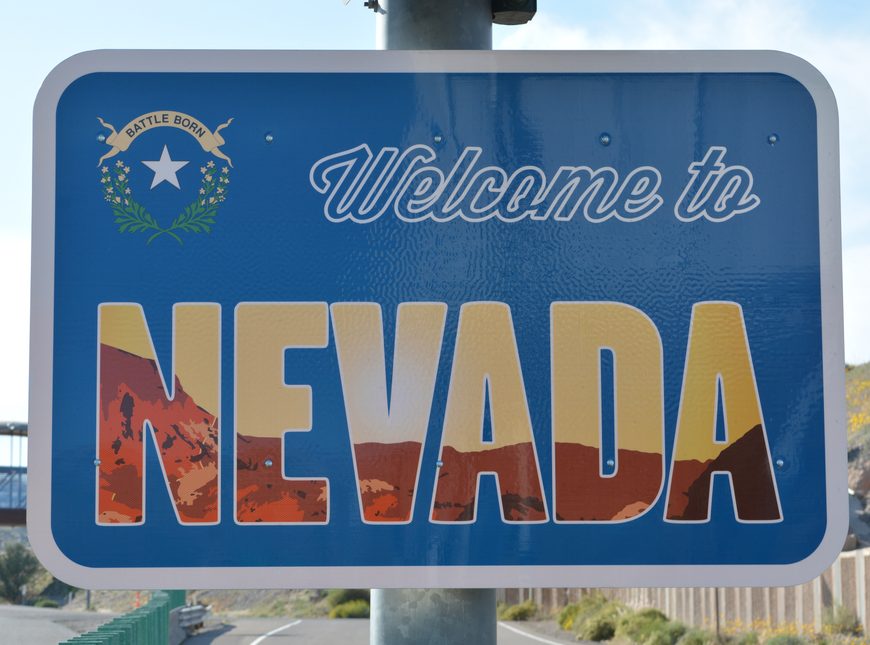Nevada ends exploitative incarceration costs with the passage of SB416
The FFJC team in Nevada had a successful legislative session achieving reform in multiple areas and laying the groundwork for more progress in the future. SB416 passed and was signed by Nevada’s governor, marking a major step towards addressing the high costs of incarceration in the state for both incarcerated individuals and those who support them. Read our full 2023 legislative recap here.
People in prison are expected to pay heavily inflated costs for basic needs like food, hygiene products and medical care. In many cases, NDOC price markups on basic necessities can climb as high as 66%. Most of the money in an individual’s commissary account (a fund used to buy basic needs) is provided by family members and friends of the incarcerated. Many families go into debt trying to pay the high costs of incarceration of their loved one.
SB416 ends medical co-pays for incarcerated individuals and room and board fees. Prior to the passage of SB416, NDOC’s policy was to garnish 25% of all wages earned by incarcerated individuals for “room and board” despite the fact that these wages could be as low as 60 cents an hour. SB416 also codified in law recent policy changes at NDOC that eliminate all mark-ups on hygiene items.
Nevada orders the state’s first comprehensive review of the misdemeanor system
Misdemeanor cases make up nearly 60% of all criminal cases in Nevada. Over the last three years, hundreds of thousands of individual misdemeanor cases were filed across the state of Nevada. — nearly all of them resulting in fines and fees. These mounting fines and fees have left scores of Nevadans saddled with thousands of dollars in court debt. Due to the misconception that the collateral consequences of misdemeanors have little impact this system rarely receives the scrutiny it deserves. This comprehensive review of the misdemeanor system is a major step in ensuring that we have a justice system that is equitable and fair.
Partnering with the Nevada Department of Sentencing Policy we crafted legislation that requires the Nevada Sentencing Commission to establish a subcommittee to study and report on misdemeanors. This subcommittee with the support of the staff of Nevada Department of Sentencing Policy will systematically collect data and information from courts, police departments and other criminal justice stakeholders allowing Nevada to see a complete picture of this massive system for the first time.
Read our full 2023 legislative recap here.
More victories for fines and fees reform
End of debt-based license suspensions and criminalization of traffic tickets (2021) — On June 8th, 2021, Governor Sisolak officially signed two major fines and fees reforms into law — AB 116: a bill to decriminalize traffic tickets and stop issuing warrants over unpaid court debt and SB 219: a bill to end debt-based license suspensions passed the Senate. Read more.
AB 434 (2019) — Makes several changes regarding collection of fines, fees, and restitution. Read more.
AB 416 (2019) — Clarifies that community service credits can be applied toward outstanding fines and fees, provides that community service hours will be credited against debt at a rate of $10 per hour or the state’s minimum wage, whichever is higher; provides that any fine or fee not collected within 8 years is deemed “uncollectible.” Read more.
AB110 (2019) — Makes changes to the notification process for traffic tickets and related court dates. Read more.
Advocacy Resources
How the NDOC’s Practices Exploit Struggling Families for Profit (Issue Explainer)
Decriminalizing Poverty Webinar: Lessons & Strategies from Nevada’s Reform Victories
FFJC Op-Ed: It’s Time for Nevada to End Modern-Day Debtor’s Prison
Policy Guidance: Eliminating Fees and Discharging Debt
Help us end the criminalization of poverty in Nevada
The Fines and Fees Justice Center’s (FFJC) Nevada state campaign is the state’s first sustained effort to reform harmful fines and fees. FFJC’s office in Nevada is building broad-based coalitions from across the political spectrum including people who have experienced the criminal justice system, grassroots organizations, activists, judges, public defenders, prosecutors, legislators, law enforcement, and faith-based and advocacy organizations.
Do you or your organization want to join thousands of Nevadans in the fight for a fair justice system? Contact Nevada State Director, Nick Shepack at nshepack(at)finesandfeesjusticecenter(dot)org.
Stay informed.
Sign up for FFJC’s monthly newsletter and follow us on Facebook and Twitter.
